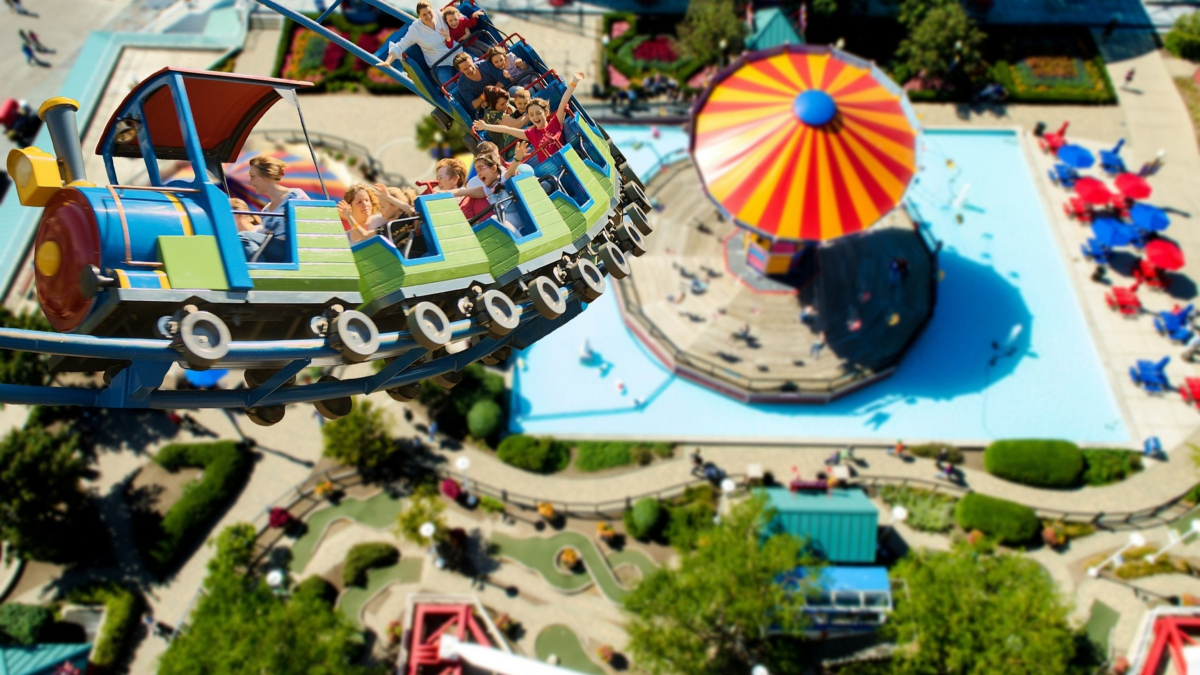A Theme Park owner in Joliet, Illinois is being sued by a riding passenger who was allegedly injured on one of the park’s haunted teacup rides.
Theme park liability can seem like murky legal territory. Indeed, there are many different state statutes and legal jurisdictions as well as federal regulation from the Consumer Product Safety Commission, according to SafeParks, who holds a database of states and agencies.
Frank Sikora is the owner of the Haunted Trails Theme Park in Joliet. The business was passed down by his father. He disputes the claim that his park and the rides within them were responsible for a teenage girl’s injuries, which were sustained while participating in riding them. The girl, according to local media, was ejected from the Bone Shaker ride in the Haunted Trails theme park.
The passenger was Ashley Brouk, of Farmington, Missouri. At the time of the incident, she was 14 years old. A lawsuit filed against Haunted Trails claims that there are no warning signs for the speed of the ride’s cars and no restraint systems. The girl was reportedly hit by another teacup car once ejected from the one she was riding. The lawsuit alleges that the ride’s operator refused to stop the Bone Shaker ride while the situation was taking place. John Kolb is Brouk’s attorney in the case. According to Brouk’s attorney, John Kolb, the girl suffered a variety of ailments including scars on her head on two sides, memory loss, head injury, and migraines.
Residents and the park’s owner agree that the Bone Shaker is wildly popular. It consists of several teacup cars adorned with Skulls, bones, and skeletons. There is a ghost in the center of the ride for decoration. Signs posted, according to reports, read “Ride at your own risk” or require small children younger than 5 years old to be with an adult. Sikora said the ride is safe and many children have ridden the ride over the years and never been injured. He also argued that Brouk was standing up on the ride and told to sit down by an operator. Sikora also said Brouk’s uncle, with her on the ride, said he was at fault for the incident. Sikora also said his insurance company investigated and found the park had no liability.
Kolb argues that an insurance company has a financial interest in the avoidance of liability in the matter, so they are not properly fit to make such a judgment the way a jury could. However, Sikora said there is a witness that saw Brouk standing up and told to sit. Once ejected, Brouk’s stepfather claims he told the operator to stop the ride and the operator refused.
In this case, the facts amount to one or even both party’s honesty about really happened. Did the ride operator refuse to stop the ride? Could he stop the ride and stop it safely? Was Brouk standing and were posted signs at the park sufficient for patrons of the rides to understand appropriate conduct on the ride? Was safety a priority at the park and were safety guidelines clear enough for the average rider to interpret? Kolb said Brouk seeks in excess of $50,000 plus court costs and attorney fees.


